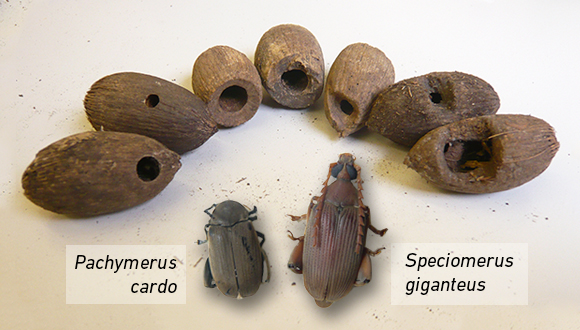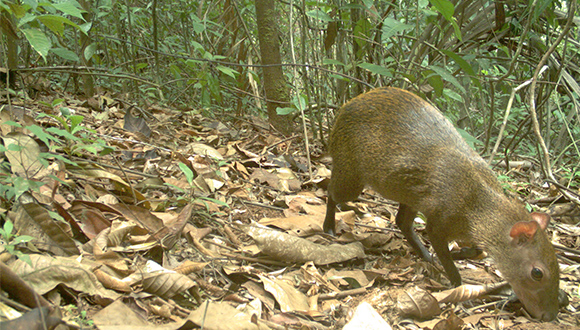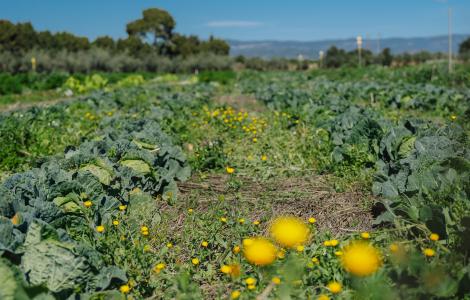The loss of predators can reduce the diversity of prey
A study by CREAF and the Smithsonian Institute for Tropical Research shows that when the populations of large and mid-sized vertebrate animal are reduced, a phenomenon known as “defaunation,” this has negative repercussions for the rest of the ecosystem. This is a clear sign about the vulnerability of ecosystems to global biodiversity loss.

A study led by Guille Peguero, researcher from CREAF and University of Antwerp, carried out in the tropical forests of Panama, shows the crucial role of large and mid-sized predators for ecosystem stability. The researchers studied changes in the populations of two weevil species which use seeds of the same palm species to reproduce in relation to the abundance of predators which feed on palm fruits as well as the weevils.
A complex food network centered on palm dates
The two weevil species studied (Pachymerus cardo and Speciomerus giganteous) reproduce by placing their larvae in the interior of seeds of the royal palm (Attalea butyracea). However, they go about this in different ways: : “while Pachymerus deposits a significant number of small eggs on the surface of the date, Speciomerus can only deposit a few larger-sized eggs directly on the seed when it has become exposed, already stripped of its fleshy part. Because of this difference, monkeys and rodents that feed on these dates determine the number of seeds which become available to each weevil species,” explains Peguero.
«Agouti allows both weevils species to coexist. Without this rodent presence, Speciomerus weevil would disappear.»
One of the animals playing a particularly important role in this complex network of feeding interactions is the agouti, a large-sized rodent which feeds on both the fleshy parts and seeds of the date palms as well as the weevils inside. “When this predator is absent, there are very few uncovered seeds, and as a consequence the populations of the large weevil Speciomerus are drastically reduced. This means that without the presence of the agouti, this species of weevil would disappear, although this declining trend is already noticeable long before the rodent has completely disappeared,” says the researcher.

A warning about global biodiversity loss
Peguero reminds us that biodiversity is being lost globally at an alarming rate, and animals of medium and large sizes are those which are disappearing fastest, a phenomenon which ecologists have come to call “defaunation.” Hunting of these animals and the loss and fragmentation of their habitats – trends which are only increasing - are the principal causes for this defaunation. “The functioning of an ecosystem has been compared many times with a house of cards; if you take a card out of the structure you run the risk of having the whole thing collapse,” says the CREAF researcher. “What this study shows is that you don’t even need to go as far as removing the card completely; just moving it can cause the whole system to wobble,” says Peguero.
This study included the active participation of researchers from the Smithsonian Tropical Research Institute (Panama/USA) and the University of Wageningen (Holland). The video is courtesy of Patrick Jansen and Helen Esser.
ARTICLE
Peguero G, Muller-Landau HC, Jansen PA, Wright SJ. (2016). “Cascading effects of defaunation on the coexistence of two specialized insect seed predators”. Journal of Animal Ecology; 86(1): 136-146. DOI: 10.1111/1365-2656.12590.







